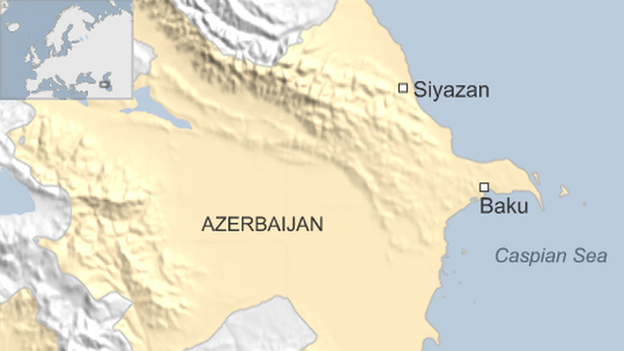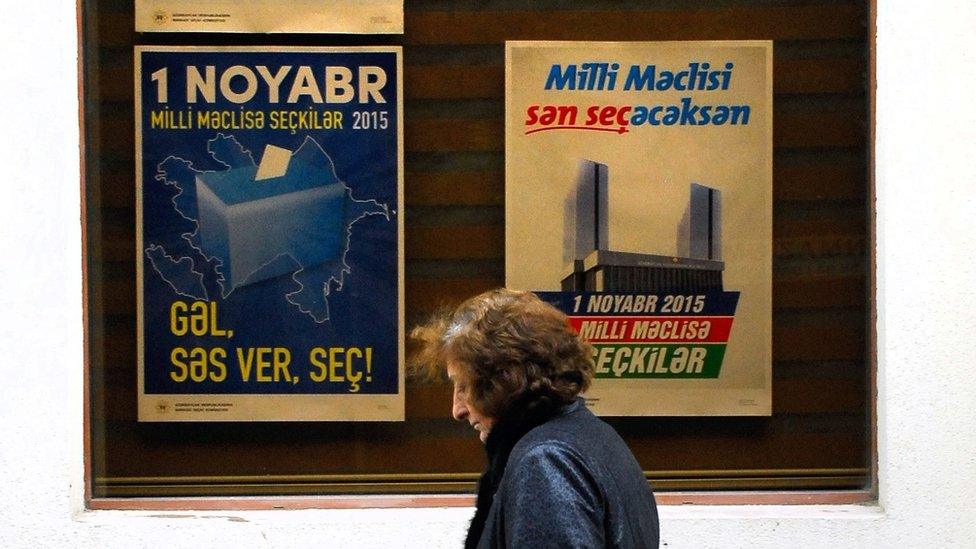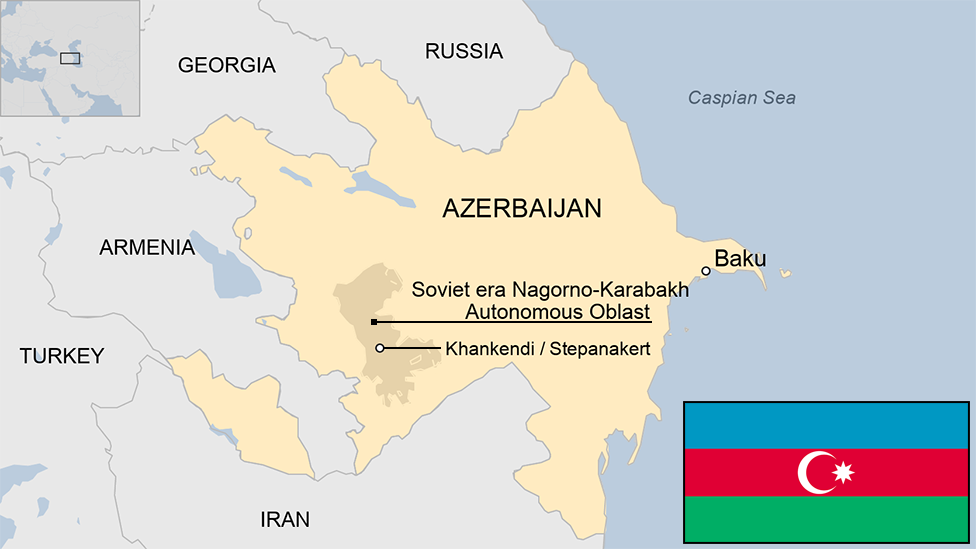Azerbaijan hit by price protests amid oil slump
- Published

Footage of the protests was shown by independent station Meydan TV
Police have detained 55 people after protests over rising food prices in Azerbaijan.
At least one person was treated in hospital and several were hurt as police used tear gas and rubber bullets to disperse protesters in Siyazan.
The demonstrators were angry at worsening economic conditions sparked by the fall in the price of oil.
Azerbaijan's economy is heavily dependent on oil. Nearly half its GDP in 2014 came from the oil sector.
Oil prices have slumped by 70% in the past 15 months, down to $31 a barrel on international markets.
Azerbaijan's currency, the manat, has also fallen dramatically in value.
The interior ministry said the protests were organised by the opposition and religious extremists.
Price cut
The government has ordered a cut in the price of flour in response to the crisis, effective from Friday, according to Reuters news agency.
VAT was being waived on wheat imports and the sale of bread and flour, it said.
In a further move to prop up the faltering manat, Azerbaijan's central bank has banned the sale of foreign exchange in bureaux de change run by commercial banks, Reuters adds.

People queued to change currency and some bureaux de change were closed on Thursday

Analysis by BBC Azeri editor, Konul Khalilova
Why are protests happening now?
Azerbaijan's economy, heavily dependent on oil revenue, has been shaken by decreasing oil prices on the world markets. Small businesses have suffered enormously in recent years because of bribes allegedly demanded by officials. Corruption has been a major hurdle for businesses in Azerbaijan, according to the International Monetary Fund.

Currency falls and price rises
Azerbaijan's local currency, the manat, was almost equal to the euro at the start of last year but was devalued against the dollar in February 2015.
In December 2015 the Central Bank unpegged the manat from the dollar, and an immediate price hike followed. This heavily affected low-income families. Many others with large bank loans suffered too.
Azerbaijan imports even most of the basic consumer goods and, although some agricultural products are produced locally, raw materials for their production are brought in from abroad.
What next?
Despite recurrent warnings from international and local analysts about the expected effects of oil dependency, the Azerbaijani government has done very little to improve other industries.
In a country where media are under strict control, critical voices are met with force.
Discontent was relatively low during the oil boom, but now the volatile currency means that price increases affect almost everyone.
And as the range of people who suffer increases, it may prove difficult for the government to appease the wider public.

- Published1 November 2015

- Published13 January 2016

- Published13 February 2024
